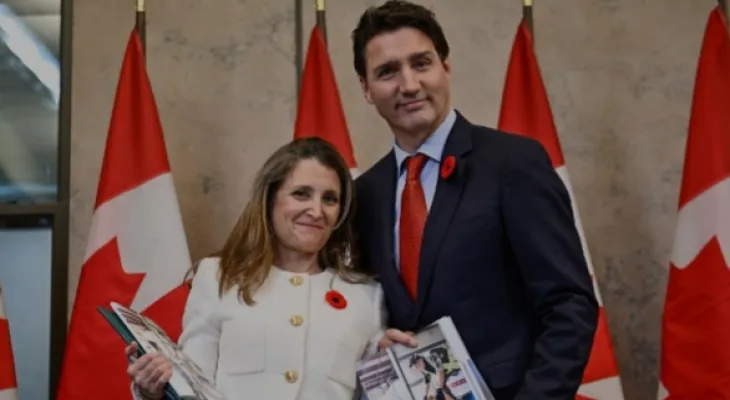Search here
Newspaper
Search here

Arab Canada News
News

Published: November 6, 2022
Finance Minister Chrystia Freeland stood by her government's decision not to impose a surprise tax on oil and gas companies in this week's fall economic statement, despite calls from the New Democratic Party to do so, and other G7 countries taking similar steps.
Freeland also unveiled her fall economic statement on Thursday, which provided an update on the state of the Canadian economy and detailed Liberal spending plans. Freeland also noted in the weeks leading up to the statement, it featured little in terms of new spending, but it includes targeted measures previously announced, such as doubling the GST credit and dental benefits for some children under 12 years old.
Additionally, the economic update includes a "downside scenario," an indicator of worse-case deficits expected if Canada enters a mild recession in the new year. But the Liberal supply and confidence partners, the New Democratic Party, are calling for a surprise tax on large corporations, including oil and gas companies, that would exceed the surprise tax on banks and insurance companies announced in the last budget.
The surprise tax is considered a hike in the tax rate on specified profits above average resulting from unexpected circumstances, such as the war in Ukraine, which led to revenue gains for oil and gas companies. But in an interview with CTV's Question Period with Joyce Napier, aired Sunday, Freeland said it is not something the government is considering at this time, adding: "The surprise tax on financial institutions was based on a very specific set of circumstances. During the Covid-19 lockdowns, the federal government spent in extraordinary emergency situations. We basically put a line, a net, under the Canadian economy. It was the right thing to do, and it really helped our financial institutions."
In addition, Freeland instead mentioned the two percent tax on share buybacks by large corporations, a new measure included in the economic statement, which she said is "the right measure to ensure fairness, but also fundamentally in creating the right incentives for the largest companies in Canada, very much including many oil and gas companies."
Comments